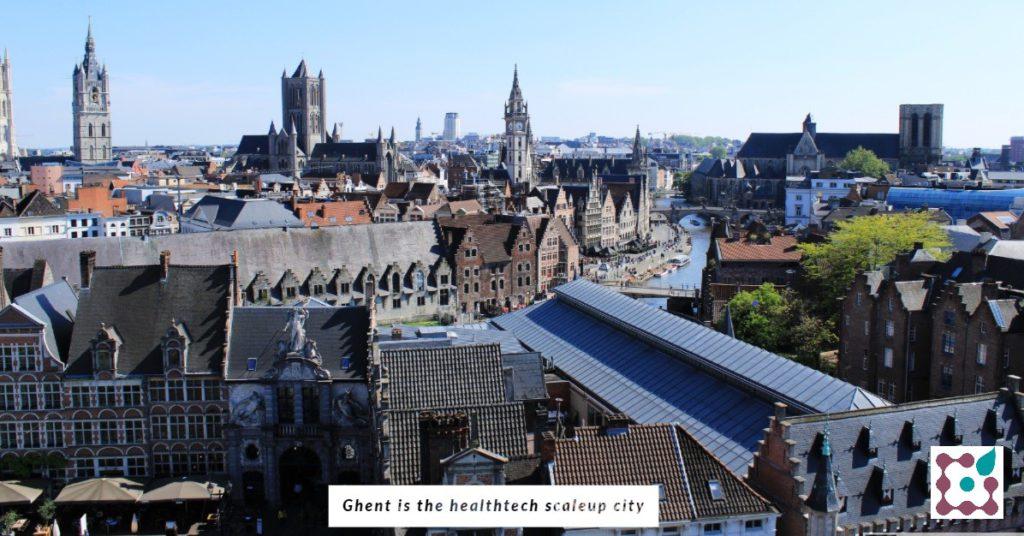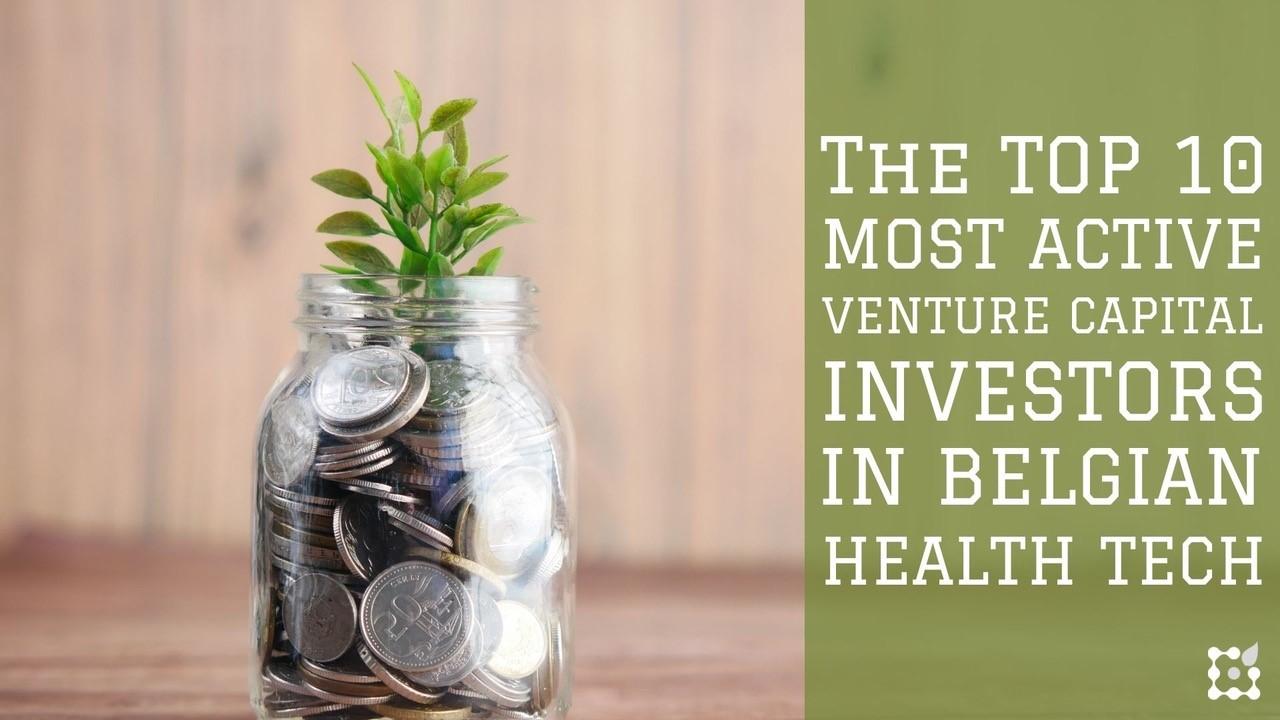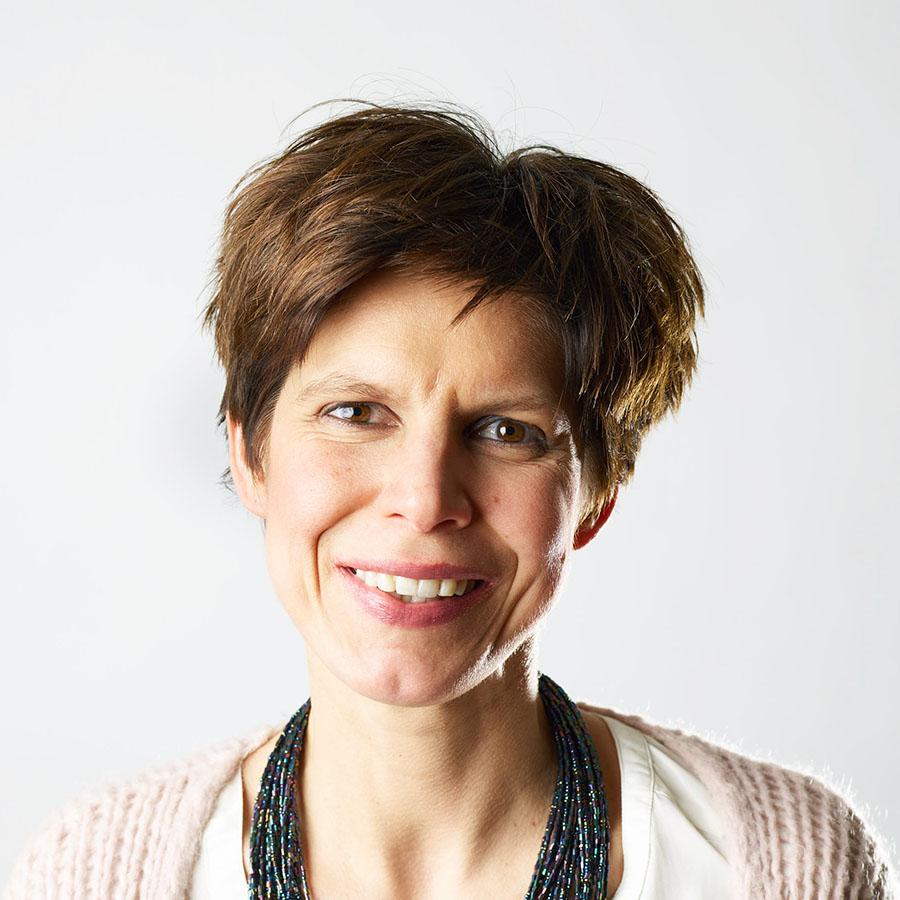Healthtech is a broad sector
note: this article was first published in january 2018. This is an updated version of september 2019 (1).
Worldwide, HealthTech or digital health is one of the top sectors for startups and scaleups.
In general, we speak of HealthTech referring to companies that use software or data to improve efficiency and outcomes in healthcare (Source: CB Insights).
Healthcare is disrupted by healthy aging, technologies and changing customer behaviour, to name a few things. Healthtech startups build new products and business models in each and every segment of the healthcare sector: lifetech, medtech, caretech, …
This is how the HealthTech ecosystem in Belgium looks like in 2017. We share 6 insights on this growing Belgian ecosystem, that already had a peak year in 2016.
And you’ll be surprised about Ghent…
1. The Belgian HealthTech ecosystem grows more mature in 2017
HealthTech remains the largest startup sector in Belgium: 10.7% of the Belgian technology companies are working on health solutions. In 2016, this remained just under 10%.
HealthTech is well ahead of the 2nd Belgian startup sector manufacturing.
Brussels remains the HealthTech startup hotbed, followed by (approximately equally) East Flanders, Flemish Brabant, Antwerp and Limburg. We find few healthtech start-ups in West Flanders.
2. 47% are scaleups: companies in financial (and turnover) growth
This slightly exceeds the strong figures of 2016, when we recorded 46% scaleups in health for the whole year.
At least 6 HealthTech companies have raised growth capital in 2017: Byteflies, Qompium (Fibricheck), PharmaFluidics, Zora Robotics, Activ84Health and Cubigo.
HealthTech continues to grow above the Belgian scaleup average of 39% (in 2016) and finally seems to get enough market turnover. This indicates a more mature ecosystem.
3. many spin-offs and spin-outs in HealthTech
No less than 22% of Belgian companies (compared to 18% in 2016) originate from a university. This indicates a strong link with existing R&D organisations and structures in this field.
To compare: other sectors record less than 10% spin-offs. From the scaleups mentioned before, only Zorarobotics and Byteflies are no spin-off.
A quarter of the companies participated in an accelerator program.
Top 3 of these programs are 1) MIC Flanders (since 2018: Blue health Innovation Center), 2) imec.iStart and 3) Startit @KBC.
It is striking that these are all programmes based in Flanders.
4. Ghent is the digital health scaleup city and Brussels the startup hotbed
Ghent is the Healthtech scaleup city of Belgium in 2017: Molecubes, Ontoforce, Eyeco Eyeco, Indigo Diabetes, PharmaFluidics have their home base there.
Hasselt is making a nice second place with Ugentec, nexuzhealth, Qompium (Fibricheck) and Cubigo.
Flanders remains the largest startup region, but Brussels and Wallonia are also growing further. Brussels remains above all a hotbed for starters in health.
HealthTech start-ups in Belgium – breakdown by region 2017:
Brussels: 26%
Flanders: 52%
Wallonia: 22%
5. More scaleups use the B2C business model; B2B drops to 70%
29.6% of all health scaleups offer their product directly to the consumer (B2C), often in addition to the B2B option.
This is particularly true in caretech and healthtech.
The idea is smart: startups try to accelerate the go-to-market by making their products accessible for individual early adopters as well as for healthcare professionals. Both channels influence and reinforce each other.
Fibricheck, for example, applies this idea as follows: the startup chooses a ‘patient to doctor’ model: the application must be digitally prescribed by a doctor, but it is the patient who downloads and pays.
This way, Fibricheck wants to increase trust and professional uptake, and interested users can urge their physician to use the app. And that’s exactly what happens…
The B2C business model turns user groups into active patient-consumers.
6. (Too) modest in attracting capital
In terms of HealthTech deals, Belgium companies are doing good in 2017 and take the 5th place in Europe. But Belgians are too modest in attracting capital.
Moreover, the bulk of capital investments in healthtech are situated in B2B-companies (about 90% in 2017!), which is different from European healthtech leaders as UK (50% B2B and B2C), Germany (45 B2B-55 B2C) and Sweden (35 B2B and 65 B2C).
And no, capital investments are not the only and all-glorifying indicator for the growth of companies, but they do indicate what’s possible for the Belgian healthtech ecosystem in the future.
Conclusion
HealthTech is doing great in Belgium in 2017.
We can expect this to continue because
- ageing and consumer-driven health will keep on challenging existing offers
- policy initiatives to support online care, mobile health, networks in care and outcome-based financing will grow
- personalised care budgets will be introduced
Of course, HealthTech has a somewhat special and slower growth than other sectors.
For example, privacy issues represent a true concern and challenge. And there is no European HTA for digital health yet. Moreover, open data should be further stimulated.
If you are a healthtech entrepreneur (in Belgium), it’s important to think “big” and international: in terms of go-to-market strategy, turnover, company capital, attracting talent and stakeholder relations.
Do you want to read more?
- Basics to grow in health: Find the ebook on Amazon
- Some blogs on the health market and its stakeholders here
- Find the analysis of European healthtech 2016, together with Omar Mohout
(1) based on the Sirris data about startups and scaleups (thanks to @Omar Mohout).











